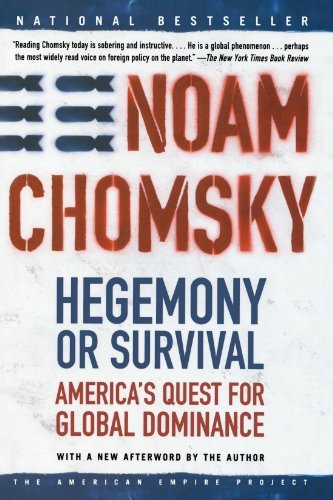
Profit Over People: Neoliberalism and Global Order
Book Description
When profit reigns supreme, human lives hang in the balance. In *Profit Over People*, Noam Chomsky unveils the dark mechanics of neoliberalism, exposing how a relentless pursuit of wealth shapes global politics and erodes democratic ideals. With razor-sharp analysis and compelling insights, he reveals the hidden costs of corporate power and the social fabric unraveling beneath its weight. This is a call to awaken from complacency, urging a reexamination of values in a world where profit often trumps humanity. Can society reclaim its voice and redefine its priorities before it's too late?
Quick Book Summary
In "Profit Over People: Neoliberalism and Global Order," Noam Chomsky delivers a searing critique of the modern global economic system dominated by neoliberal ideology. He argues that, under the guise of promoting free markets and economic efficiency, corporations and powerful elites have manipulated governments and international institutions to prioritize profit over the needs and rights of individuals. Chomsky traces the roots of neoliberalism, revealing its detrimental impact on democracy, workers’ rights, and social welfare. He demonstrates how neoliberal policies systematically erode public spaces, accountability, and social protections, both domestically and globally. The book is a clarion call, urging citizens to recognize these trends, resist complacency, and reassert the values of justice, equity, and public good in shaping the world's future.
Summary of Key Ideas
Table of Contents
The Mechanisms and Origins of Neoliberalism
Chomsky begins by charting the intellectual and political history of neoliberalism, identifying it as an ideological project advanced by economic elites since the late 20th century. He explains how policies promoting deregulation, privatization, and austerity are justified by an ostensible faith in free markets, but in reality serve as tools for corporate consolidation and wealth accumulation. Chomsky dissects the rhetoric of economic freedom, showing it often masks systematic interventions to advantage select interests at the expense of broader publics.
Erosion of Democracy and Public Space
Central to Chomsky’s critique is the notion that neoliberalism undermines democracy by transferring decision-making power from democratic institutions to unaccountable private corporations. He discusses how public policy, media, and education are influenced or controlled by corporate lobbies, restricting genuine public participation. As social welfare systems are dismantled and labor rights eroded, the public sphere shrinks and citizens' ability to shape their own destinies is severely compromised.
Corporate Power and Social Inequality
The book also examines how economic policies driven by profit exacerbate inequality both within and between nations. Chomsky exposes how multinational corporations exploit cheap labor, avoid taxes, and sidestep regulations, pushing the costs of their activities onto the world's most vulnerable. He argues that neoliberalism intensifies poverty and hardship while benefiting a narrow segment at the top, ultimately threatening the cohesion of societies and the basic tenets of justice.
Globalization and the Role of International Institutions
Chomsky provides a trenchant analysis of globalization and the roles played by institutions like the International Monetary Fund and World Trade Organization. Although these organizations profess neutrality and open trade, he argues they are often complicit in advancing the corporate agenda, enforcing economic discipline on weaker nations while enabling capital flight and exploitation. The supposed order of global markets, he suggests, is actually a form of managed chaos tailored to the interests of transnational elites.
Paths to Resistance and Hope
Despite this bleak picture, Chomsky urges readers not to succumb to cynicism. He points to historic and ongoing struggles for social justice, grassroots movements, and acts of resistance as sources of hope and potential change. He advocates for reclaiming the public sphere and restoring democratic accountability, challenging citizens to demand policies that prioritize human need over profit. The book ultimately serves as a powerful appeal for activism and ethical reorientation in the face of pervasive neoliberal dominance.
Download This Summary
Get a free PDF of this summary instantly — no email required.





